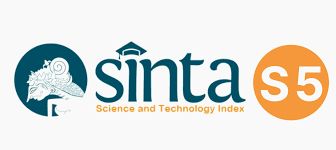
Article in Press
1. Pengembangan Website Desa Wisata Sebagai Media Promosi Digital di Kabupaten Sumba Timur
Augustina Asih Rumanti, Aloysius Adya Pramudita, Muhammad Almaududi Pulungan, Mohammad Deni Akbar, Artamevia Salsabila Rizaldi, Mia Amelia
Abstract
The tourism sector plays a strategic role in driving economic growth and empowering local communities. East Sumba Regency, categorized as a Disadvantaged, Outermost, and Frontier (3T) region, has high potential for natural and cultural tourism, such as Tanggedu Waterfall, Walakiri Beach, Wunga Traditional Village, and the Hamba Praing and Mondu tourist villages. However, tourism development in this region still faces various obstacles, particularly limited access to information, minimal digital promotion, and low technology utilization by tourism village managers. This Community Service activity aims to improve the accessibility of information and the attractiveness of tourist villages through the development and mentoring of digital-based tourism village websites. The implementation method is carried out through the website design stage. The activity was carried out over two days in Hamba Praing and Mondu Villages, involving tourism village managers and the local community. The results of the activity showed an increase in partners' understanding of the function of websites as a medium for information, destination promotion, and local product marketing, as well as an increase in managers' readiness to manage digital content. The developed tourism village websites have the potential to support tourism promotion, community economic empowerment, and local cultural preservation. Thus, the integration of digital technology through the tourism village website is a strategic step in supporting the development of sustainable tourism in East Sumba.
[Accepted Date: 11 Januari 2026]











